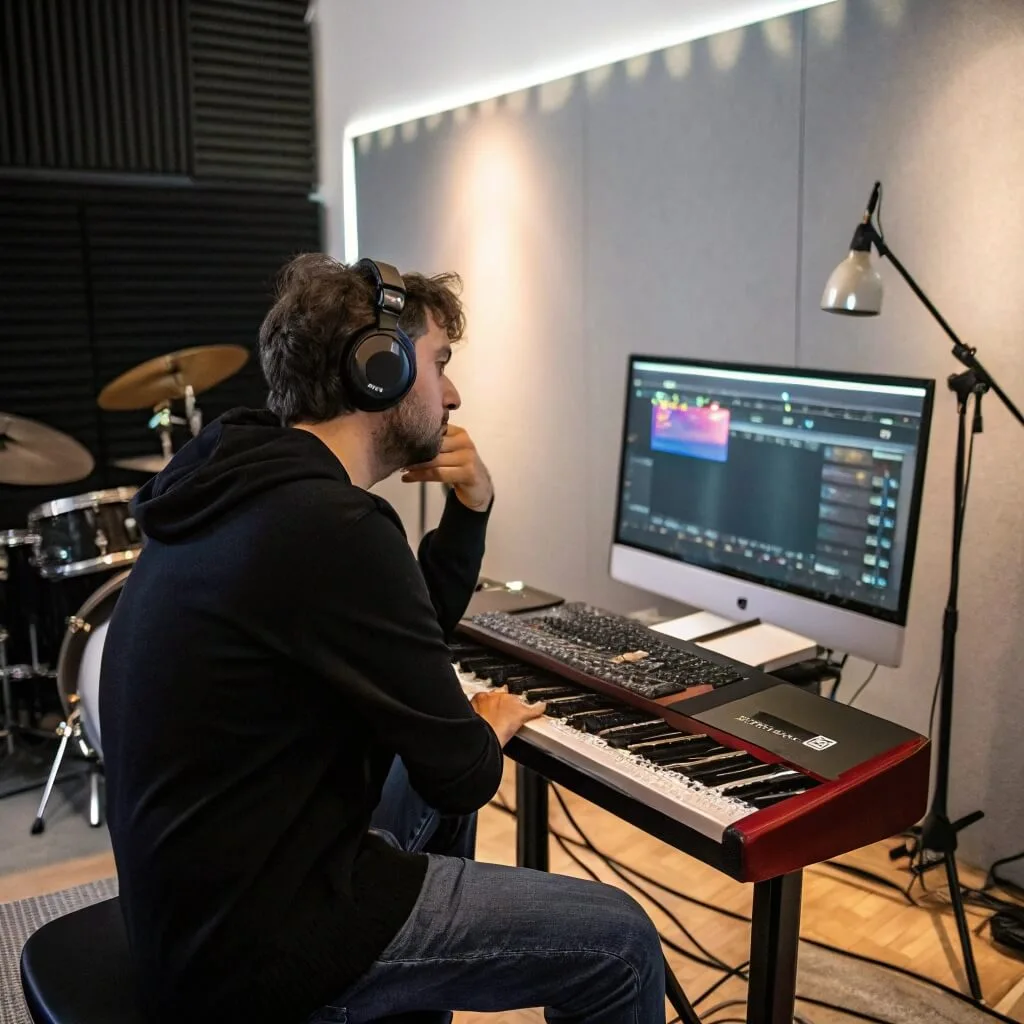AI music is reshaping the global music industry by integrating machine intelligence into everything from song recommendations to original music composition. With artificial intelligence evolving rapidly, its integration with musical creativity, production, and user engagement is setting new standards in the way we consume and experience music. Today’s smart systems don’t just play songs—they understand listeners, create beats, and personalize the entire musical journey like never before.
Personalizing Playlists: AI Knows What You Want to Hear
Gone are the days of manually searching for your next favorite track. AI systems analyze listener behavior—such as playback history, skipping patterns, likes, and more—to serve up music that aligns with an individual’s unique taste. Platforms like Spotify and Apple Music use complex algorithms to ensure you never run out of songs you love.
Key Technologies Behind Personalized Recommendations:
| Technology | Purpose |
|---|---|
| Machine Learning | Predicts music preferences based on user history |
| Collaborative Filtering | Suggests songs by comparing similar listener behaviors |
| Audio Analysis | Decodes pitch, tempo, rhythm for song matching |
| Natural Language Processing (NLP) | Interprets lyrics and metadata for contextual relevance |
Real-Time Content Delivery: Speed Meets Sound
AI is also enhancing how music reaches users in real-time. Streaming platforms utilize machine intelligence to predict and cache audio files in advance, ensuring songs play instantly without lags or interruptions.
How AI Boosts Music Streaming Performance:
- Predictive Caching: Music likely to be played is preloaded to reduce buffering.
- Adaptive Bitrate Streaming: AI adjusts the quality depending on your internet speed.
- Network Optimization: Enhances delivery speed based on user location and device type.
This seamless delivery ensures that your listening experience stays consistent—even during peak usage or in low-bandwidth areas.
Smarter Interfaces: Tailoring Music Apps to Individual Users
Not only does AI shape what we hear—it also influences how we interact with music platforms. Through continuous learning, AI tailors app interfaces to user preferences, making the layout more intuitive and content more accessible.
Features Enhanced by AI:
- Customized homepage with relevant artists and genres
- Shortcut buttons for frequently played playlists
- Voice-based search optimized by AI personal assistants
Voice commands like “Play something relaxing” or “Find 90s rock hits” are now processed with high accuracy, adding a hands-free layer of convenience to music browsing.
Composition Powered by Code: Can AI Be a Musician?
Artificial intelligence is making waves in music creation too. Software powered by AI can now generate original compositions that mimic human creativity. While machines still lack human emotion, they can produce impressive melodies, harmonies, and rhythms.
Popular Uses of AI in Music Creation:
- Automated Mastering: Tools that fine-tune songs to professional quality
- AI Composers: Algorithms that create mood-specific or genre-specific tracks
- Generative Sound Design: Produces background scores for games, films, and commercials
You can explore this fascinating realm through platforms like AI music, which offer user-friendly tools for AI-generated sound.
Intelligent Curation: Crafting Experiences Through Data
Curation has become an art form powered by intelligent systems. AI helps streaming platforms build theme-based or activity-based playlists that adapt to user moods, preferences, and daily routines.
Examples of AI-Driven Playlists:
- “Focus Mode”: Includes instrumental or lo-fi tracks ideal for working
- “Weekend Vibes”: Features upbeat songs suited for social settings
- “Rainy Day Blues”: Soft ballads and acoustic numbers perfect for introspection
AI sifts through thousands of tracks to assemble lists tailored to a user’s time of day, current mood, or location.
Challenges in Merging Music and Machine
While the integration of AI in music is promising, it’s not without roadblocks. Key concerns include data privacy, ethical music creation, and potential biases in recommendation engines.
Major Concerns:
- Privacy: Collecting user behavior data requires strong protection policies
- Bias: AI may favor popular artists, marginalizing emerging voices
- Ownership: Legal disputes over who owns AI-created music are rising
- Over-Personalization: Too much customization can limit musical discovery
Balancing automation with authenticity remains one of the biggest hurdles in this space.
The Human Touch vs. Algorithmic Precision
Despite all the technological advances, one key question persists—can AI replicate the soul of music? While machines can mimic structure and pattern, they often fall short in evoking deep emotion.
However, instead of replacing musicians, AI is being used as a co-creator, enhancing the abilities of human artists by offering creative suggestions, refining compositions, and streamlining production.
The Road Ahead: What’s Next for AI in Music?
AI’s influence on the music industry is only expected to grow. Future innovations may include:
- Emotion-based Playlists: Music that responds to real-time mood detection via wearable tech
- Hyper-Personalization: Songs composed on-demand using personal preferences
- Cross-Platform Integrations: Smart syncing with fitness apps, social media, and smart homes
As AI matures, it will evolve from being a background tool to a primary driver of creative expression.
Conclusion
The rise of AI in music signifies a powerful transformation in how we interact with sound. From personalized playlists to AI-generated compositions, artificial intelligence is redefining the musical landscape in innovative and exciting ways.
However, this revolution must be balanced with ethics, transparency, and the irreplaceable emotional connection that music offers. As we step into this harmonious future, the fusion of human creativity and machine intelligence promises to make the music of tomorrow even more dynamic, immersive, and uniquely personal.
